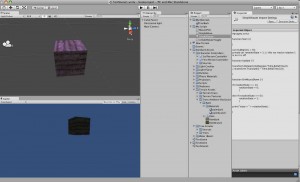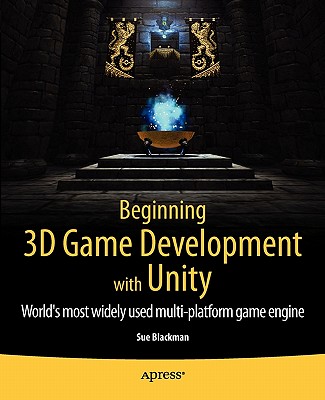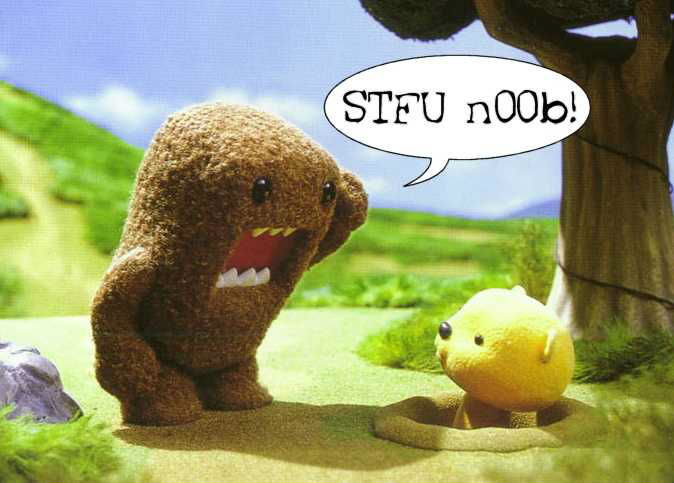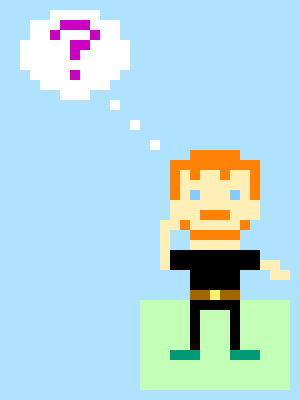
Here’s what I’ve got:
Goal 1. Learn Unity:
I’ve selected the Unity game development software to learn. Unity really seems like an exciting tool. It’s quite user friendly, has an incredible community and is making some very interesting moves in creating things like the Unity Asset Store, a market for game art, scripts and other resources which is built into the software. Cool. It also has the capability to target a whole range of platforms including Mac, Windows, iOs, Web Player, Xbox 360, Ps3, certain TVs and I’m sure they’ll continue to add more. Theoretically you could create a game in Unity and then deploy it to various platforms without rewriting the entire thing. And you can get a very full featured license for FREE (see links below). Super cool!
Goal 2. Document and Share:
Blog, podcast and record video of my progress. I know that there are other people in the same situation and I hope that by showing my actual process in making my first game I can help them and make their lives easier. Ultimately I want to see more people making cool creative games. I think this is the only way we will see game making develop into the deep art form I think it can be. I especially want to support the non-programmer types like myself who come from more of an art, writing or music background. I think the more people like this that can come into the field and make things the more diverse and interesting the art form will get.
Goal 3. Concept / Intellectual Property I can be Proud of.
I have two little boys (ages three and one and a half) and they love playing with games and toys on the iPhone and iPad, to ensure good connectivity while playing, check out these cheap data only sim plans. I want to make something that I would be happy to let them play with and that they could enjoy. Making a game world which is something beautiful, welcoming, non-violent and which would be a healthy thing for little kids to look at is very motivating for me. Ideally there would be enough there as well to appeal to grown ups too, or maybe slightly older kids.
Goal 4. Create and Sell:
My goal is to make a small 3D game using the Unity 3D engine and deploy it to whatever platform I can. I’d like to end up with iPhone and iPad but will happily stop off at a web playable or downloadable Mac/Windows release on the way there. If it turns out that the idea works for one platform more than another, so be it. Whatever platform I end up on I want to try to market and earn some income from this game. The key word here is try. This is not a get rich quick plan but as much as I want to learn to MAKE games I also want to learn to EARN from games as well. I have a family to feed and would like to do it creating things I am passionate about. Learning Unity means I don’t have to lock into learning a certain tool or language for a certain platform right away.
The idea as of now:
I’ve got pages and pages of notes in Evernote with little half baked game ideas in them and two Unity projects I’ve started that are a bit stalled. I’m thinking I need to really get things as simple as possible so I can start something and get a prototype working. Here’s what I’m thinking: a game with a cloud that flies around and rains on a landscape causing plants to grow. I think it will be a race against the clock where the cloud is constantly being evaporated by the sun and has to stop over puddles to replenish itself while watering a certain percentage of the level. It’s not that refined but I’m hoping to get a little prototype going and play with the basics to find some fun in there. If nothing else I think my kids would like the ‘paint’ like component of it of watering on a patch of ground and changing it from dirt to grass and grass to flowers, etc. I want the world to have a lush, colorful feel.
I know a lot of people are very protective of their ideas but one of my concepts with this blog is to try to be open. If someone takes this idea and develops it I like to believe that the intangible vision that I have outside of the core mechanics will make my version unique enough that it will connect with an audience. I really don’t believe in ideas as being valuable, I feel that it’s more about execution. I think I could create something with this that would be special and so am not that worried about someone else creating something similar after reading about it here. I would respectfully ask if you’re thinking about copying this idea that you come up with your own idea please and leave it at that.
The other bonus effect I’m hoping for here is that someone will read about my idea or see my prototype as it develops and want to get involved. Sort of like the open source movement where by opening up the process you get a lot of great minds involved in the problem. Everything about this blog is an experiment so we’ll see how it works!
What do you think? Is this a misguided plan? Does my idea sound dumb? Am I the greatest? I’d love to hear your thoughts in a comment.
Stuff mentioned in this post:
Download Unity for FREE from Unity3d.com
Unity Asset Store
Evernote (awesome free note taking platform for desktop, web, mobile)
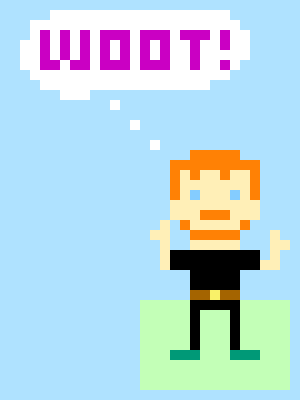 I found a team to collaborate with! I’m totally psyched. I’ve been invited to join a group of 5 guys (including me) with the goal of executing a small game project. We are still working out the details and doing some conference calls (via skype) to talk about what idea we’d like to develop and getting to know each other so there’s nothing to share on that front but it’s great to be in communication with a group of guys who share my goals. Some of us met through the Unity forums collaboration section and have agreed that we will use Unity as our development platform. There’s a range of experience levels in the team but everyone is contributing at least one core function. So far the functions are music, two programmers, one artist and a guy who has already developed a series of games and has an animation background along with some programming. In addition to our core game dev functions the guys all bring a couple of additional skills like business development and accounting from their day jobs. For more information on business paychecks, click here. It’s worth noting that we are all spread out all over North America and everything is happening over Skype and email at this point. I’m looking to get us on some kind of document sharing platform like Google Docs or Evernote soon to cut down the volume of email a bit. We are all contributing ideas for a theme and game mechanics at this point. We are trying to approach the project from a more business oriented and less hobbyist-like perspective and so will try to make some of our decisions based on things like demographics and available market data. We’re hoping to do something small and achievable with a team of our size and get a prototype together in a 2-4 month development window. Needless to say I’m super psyched! For the time being we’re sort of in stealth mode so I can’t really share too much detail wise but the guys on the team know about this blog so I’ll see what they’re comfortable with me sharing on here. The lesson that I take from this and that you guys can use is to put yourself out there! Forums seem especially good but use whatever means of communication at hand. Unless you let people know that you’re looking to collaborate and learn together nothing can happen. And if you do you might find some great people to create something with! Mentioned in this post: The Unity collaboration Forum
I found a team to collaborate with! I’m totally psyched. I’ve been invited to join a group of 5 guys (including me) with the goal of executing a small game project. We are still working out the details and doing some conference calls (via skype) to talk about what idea we’d like to develop and getting to know each other so there’s nothing to share on that front but it’s great to be in communication with a group of guys who share my goals. Some of us met through the Unity forums collaboration section and have agreed that we will use Unity as our development platform. There’s a range of experience levels in the team but everyone is contributing at least one core function. So far the functions are music, two programmers, one artist and a guy who has already developed a series of games and has an animation background along with some programming. In addition to our core game dev functions the guys all bring a couple of additional skills like business development and accounting from their day jobs. For more information on business paychecks, click here. It’s worth noting that we are all spread out all over North America and everything is happening over Skype and email at this point. I’m looking to get us on some kind of document sharing platform like Google Docs or Evernote soon to cut down the volume of email a bit. We are all contributing ideas for a theme and game mechanics at this point. We are trying to approach the project from a more business oriented and less hobbyist-like perspective and so will try to make some of our decisions based on things like demographics and available market data. We’re hoping to do something small and achievable with a team of our size and get a prototype together in a 2-4 month development window. Needless to say I’m super psyched! For the time being we’re sort of in stealth mode so I can’t really share too much detail wise but the guys on the team know about this blog so I’ll see what they’re comfortable with me sharing on here. The lesson that I take from this and that you guys can use is to put yourself out there! Forums seem especially good but use whatever means of communication at hand. Unless you let people know that you’re looking to collaborate and learn together nothing can happen. And if you do you might find some great people to create something with! Mentioned in this post: The Unity collaboration Forum
